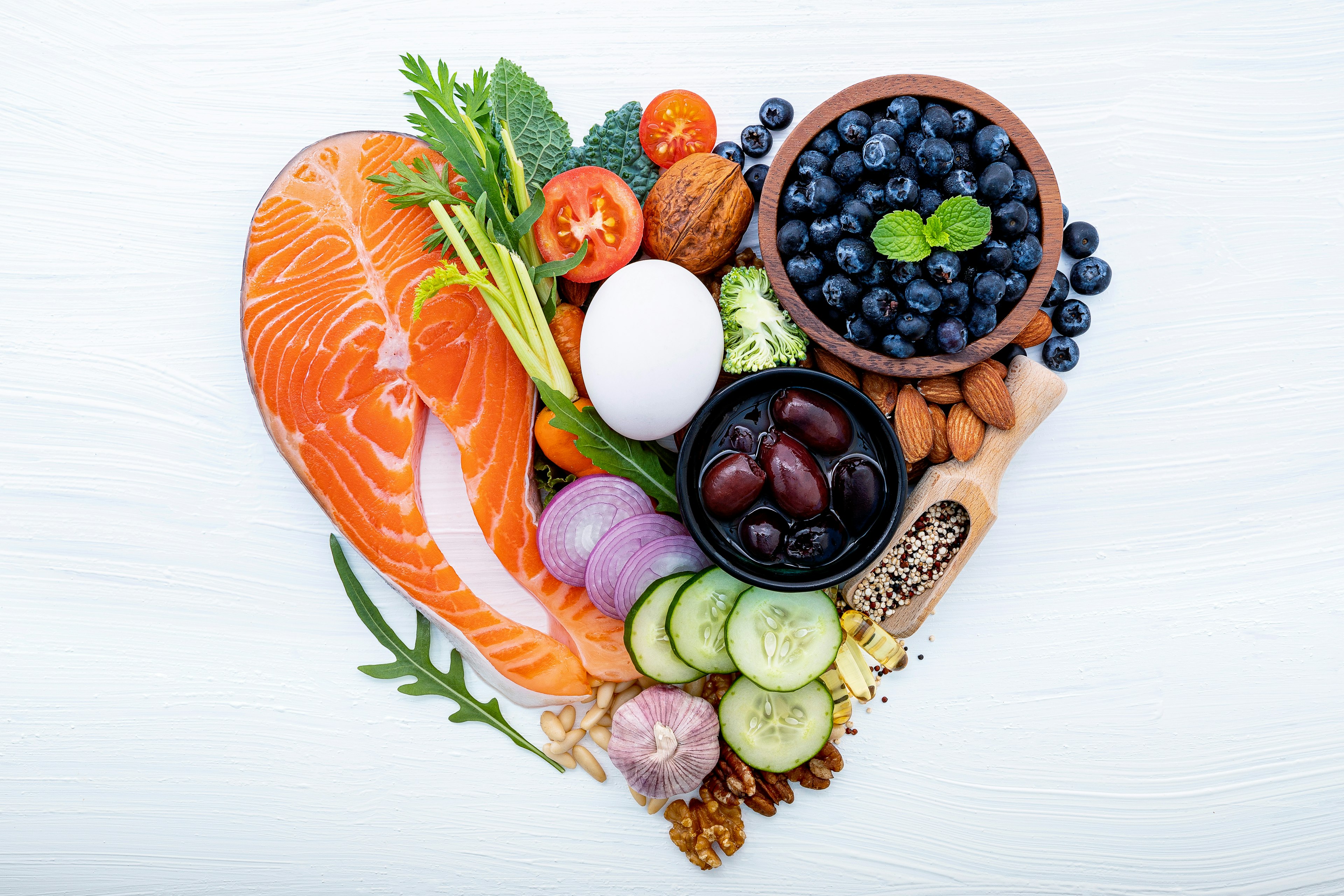Key Takeaways
Foods like berries, fatty fish, nuts, seeds, whole grains, and legumes support heart health by lowering blood pressure, reducing cholesterol, and decreasing inflammation.
Small, consistent changes such as swapping refined grains for whole grains and choosing plant-based snacks help build long-term cardiovascular benefits.
A heart-healthy diet is just one part of managing risk. Talking with a doctor provides personalized guidance and support for blood pressure and cholesterol control.
Cardiovascular disease remains the leading cause of death in the U.S. As of 2024, nearly 1 million Americans died from cardiovascular disease, which equals about one death every 34 seconds. Simple choices at the grocery store can make a meaningful difference in your heart health.
Cardiologists often recommend specific foods to strengthen your cardiovascular system, lower inflammation, and manage cholesterol. In this post, we cover the top heart-healthy foods and how to add them to your daily routine.
What is the Best Food for Your Heart?
Berries
Blueberries, strawberries, raspberries, and blackberries are packed with fiber and antioxidants, particularly anthocyanins. These compounds may help lower blood pressure and LDL (“bad”) cholesterol, as well as protect blood vessels from damage.
- Snack on them fresh or frozen
- Mix into oatmeal or yogurt
- Blend into heart-healthy smoothies
Fatty Fish
Consider incorporating fatty fish like salmon, mackerel, sardines, and trout into your diet, as they are all rich in omega-3 fatty acids. This is important because omega-3s have been shown to reduce inflammation and lower triglyceride levels.
- Aim for two servings per week
- Grill or bake salmon with herbs
- Add canned sardines to salads or toast for a quick meal
Nuts and Seeds
Walnuts, almonds, chia seeds, and flaxseeds offer heart-friendly fats, plant-based protein, and fiber. Additionally, they work to lower LDL cholesterol and lessen inflammation when eaten in moderation.
- Sprinkle chia or flaxseeds into smoothies or oatmeal
- Snack on a small handful of unsalted almonds
- Use crushed walnuts as a topping for roasted vegetables
Whole Grains
Whole grains such as oats, quinoa, brown rice, and barley provide soluble fiber, which works to reduce cholesterol and support healthy digestion.
- Start your day with steel-cut oats
- Choose brown rice or quinoa instead of white rice
- Bake with whole wheat flour instead of refined flour
Beans and Legumes
Beans, lentils, and chickpeas are high in fiber, protein, and important nutrients like potassium and magnesium. They support steady blood sugar levels and contribute to healthier blood pressure and cholesterol, both important for your heart.
- Add black beans to tacos or grain bowls
- Stir lentils into soups or stews
- Use chickpeas in salads or mash for a sandwich spread
What Does a Healthy Plate Look Like?
Mindfulness about your food choices doesn’t mean you need to overhaul your diet overnight, especially when it comes to your heart health. Instead, start by making small changes over time:
- Swap refined grains for whole grains (e.g., choose brown rice, quinoa, or whole wheat bread instead of white rice or refined pasta)
- Replace processed snacks with nuts or fruit (e.g., opt for almonds, walnuts, apple slices, or berries instead of chips or cookies)
- Add more vegetables to your lunch or dinner (e.g., include leafy greens, roasted carrots, bell peppers, or steamed broccoli)
- Consume lean cuts of meat and reduce intake of processed forms of meat (e.g., choose skinless chicken breast or turkey instead of bacon, sausage, or deli meats)
These gradual diet adjustments add up over time and protect your cardiovascular health in the long run.
Talk to a Doctor About Diet Recommendations to Support Your Heart Health
Although the right foods and a heart-healthy diet play a key role in managing blood pressure and cholesterol, they’re just one part of the equation. If you have high blood pressure, elevated cholesterol, or a family history of heart disease, it’s important to speak with a doctor. They can help identify risk factors, provide personalized guidance, and support you in building a care plan that fits your lifestyle.





